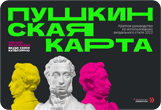15.04.2005
Deadly Sins
John Freedman ,
"The Moscow News"
07.04.2005
Торжество невысшего суда
Валерий Золотухин ,
"Полит.ру"
07.04.2005
Сухово без Кобылина
Ольга Галахова ,
"Независимая газета"
07.04.2005
Тени забитых предков
Наталия Каминская ,
"Культура"
06.04.2005
У Калягина уморили Тарелкина
Полина Ерофеева ,
"Собеседник"
04.04.2005
Мцырь в полосочку
Ольга Фукс ,
"Вечерняя Москва"
04.04.2005
Еt cetera в полосочку
Алена Карась ,
"Российская газета"
04.04.2005
Смерть в полосочку
Ольга Егошина ,
"Новые Известия"
04.04.2005
У него люди в полосочку
Марина Давыдова ,
"Известия"
04.04.2005
Вся Россия — наш ад
Глеб Ситковский ,
"Газета (Gzt.Ru)"
04.04.2005
У вас спина полосатая
Олег Зинцов ,
"Ведомости"
04.04.2005
Русь полицейская
Александр Соколянский ,
"Время новостей"
02.04.2005
Полосатый фарс
Роман Должанский ,
"Коммерсантъ"
01.04.2005
Главное событие сезона — смерть
Алла Верди ,
"Газета.ru"
01.04.2005
Кто твои сообщники?
Дина Годер ,
"Газета.ru"
22.03.2005
Смерть Тарелкина
Екатерина Рябова ,
"Афиша"
01.01.2005
О некоторых загадках…
Ольга Нетупская ,
"Планета Красота"
Пресса
5:00
2025
2024
2023
2022
2021
2020
2019
2018
2017
2016
2015
2014
2013
2012
2011
2010
2009
2008
2007
2006
2005
2004
2003
2002
2001
2000
1999
1998
1997
1996
1995
1994
1993
0:00
Deadly Sins
John Freedman
"The Moscow News" ,
15.04.2005
Alexander Sukhovo-Kobylin’s “The Death of Tarelkin” is one of the great legends of Russian theater. This is true in part because it is one of those prophetic, incisive works that has been an awkward fit in almost every age since it was written. It is also true because it is one of the most exquisitely composed plays in the Russian canon. Its story of a man faking death in order to start a new life, but then falling victim to his enemies, is harrowing and hilarious at the same time. Sukhovo-Kobylin defined his play, completed in 1869, as a “comedy in jest.” In fact, it is a slashing, burning assault on just about everything – from corruption and stupidity to evil-doers and do-gooders. I think it must be one of the angriest plays ever created. It seethes from beginning to end with utter loathing for politicians, policemen and bureaucrats. I wouldn’t want to make too much of the parallels, but history seems to show an increase of interest in “The Death of Tarelkin” during times of social upheaval. After being banned for 30 years, the play was produced twice shortly before the 1905 revolution. It was most popular in the decade following the 1917 revolution and it had small revivals at the end of the Thaw period in the mid-1960s and during the Perestroika years. A new production at the Et Cetera Theater is the first major mounting of the play in over 15 years. Meanwhile, another production is on the verge of opening across town at the Yermolova Theater. Time will tell whether history is trying to inform us of something. The show at the Et Cetera is also of special interest for it marks the Moscow debut of Oskaras Korsunovas, an important young director from Lithuania. Korsunovas follows his more famous countrymen Eimuntas Nekrosius and Rimas Tuminas who in recent years have gone beyond touring to Moscow with their famous shows and have begun actually working here with Russian actors. Cross-cultural pollination is a fabulous thing in theory and it is doubly so when it involves artists of the first rank. The notion of bringing Korsunovas together with the veteran actor Alexander Kalyagin – the artistic director and the leading man at the Et Cetera – couldn’t help but intrigue. But the realities of such hybrid projects do not always live up to expectations. It is hard to avoid suspicions that the director and the cast of “The Death of Tarelkin” never quite found a common language. Visually, this show is one of the most interesting of the season. Set designer Jurate Paulekaite and costume designer Sandra Straukaite created a pictorial symphony of black and white, usually in the form of bold stripes, splashed with occasional flashes of brilliant color. This approach was supported by lighting designer Andrei Tarasov who usually holds the stage in dark shades or bright white light, but occasionally floods the space in yellow, blue or red. The dominant stripes at times morph into checkerboard designs or bleach into blank white depending upon changes in the lighting. Actors wearing striped costumes may seem to fade into the background. We can read this as we will. Perhaps the space is intended to resemble that of a circus. Perhaps these are the stripes of prison bars and prison garb. Perhaps it is a metaphor that the “black and white” of moral imperatives are rarely found in pure states, but are almost always intermingled. Tarelkin (Vladimir Skvortsov) is a debt-ridden, St. Petersburg bureaucrat with a grudge against his superior Varravin (Kalyagin). When news comes that his neighbor Kopylov has died abroad, Tarelkin resolves to exchange places with him. He will arrange a fake funeral for himself, stuffing a coffin full of dead fish to provide the proper aromas to fool anyone who might be suspicious. Then, under the guise of Kopylov, he will head to “the sticks, to Moscow” for an unfettered life of freedom. He has stolen incriminating papers from Varravin and after the dust settles in a few years he will begin blackmailing him to keep the cash flowing. What Tarelkin does not foresee, however, is that Varravin sniffs out the ruse right from the start. Hiding behind the guise of the blustery Captain Polutatarinov, he convinces the police that “Kopylov” is a changeling and werewolf wrapped in one and that the only way to deal with him is to throw him in solitary and deprive him of water. The policemen in charge of the investigation – Antiokh Okh (Viktor Verzhbitsky) and Ivan Rasplyuyev (Pyotr Smidovich) – set up a vicious system of interrogations in which they terrorize everyone who has ever come into contact with Kopylov. Sukhovo-Kobylin’s language and dialogues are monuments of masterful writing. He creates phrases and conjures characters that remain vivid long after you first encounter them. His portraits of people driven by fear, greed, hatred, avarice, jealousy and every other human vice are among the greatest produced in Russian and world drama. At the Et Cetera the words of the playwright remain stronger and more memorable than the life given to them by the cast. Tarelkin and Varravin here are presented as two opposites – the nervous, hysterical clerk locked in an uneven battle with his composed, though steely, supervisor. Shades of this emotional spread are reflected in Okh’s often frenzied nature and in the sort of down-home simplicity of Rasplyuyev. All of them seem remarkably flatter and less engaging than we would expect. Korsunovas added a new dimension to the play by introducing doubles of Tarelkin/Kopylov (Rushan Iksanov) and Rasplyuyev (Yury Butorin). These are voiceless shadow figures who live a semi-independent life behind a scrim, the back wall of the stage-on-the-stage. Comical and exaggerated in their movements, they occasionally take on a life of their own. In addition to the elaborate shadow shows, Korsunovas uses the scrim at times as a movie screen, offering enormous close-ups of characters’ faces that echo or duplicate the expressions of the actors on stage. The shadows and the cinematic effects play with images familiar from old silents, Soviet classics and, perhaps, Western blockbusters. For instance, was that Kalyagin looking a bit like Marlon Brando’s Don Corleone just before Okh and Rasplyuyev put the torture machine into action? The composer Gintaras Sodeika provides mostly minimalist music of plunking piano notes or echoes of the kinds of music one might expect to hear at a carnival. He opens the show with the sounds of water dripping giving way to deep crunching noises. Each of them is unsettling in its own way. Naturally, there is a scene involving the actors bursting out into a rap song and dance. One wonders, can anyone seeking to look hip in East-European theater avoid the temptation of rap? This production of “The Death of Tarelkin” is chock full of imagination and eccentricity. But in the end it seems to be a deflated show of tricks and techniques that rarely add up to anything capable of convincing or engaging us.







